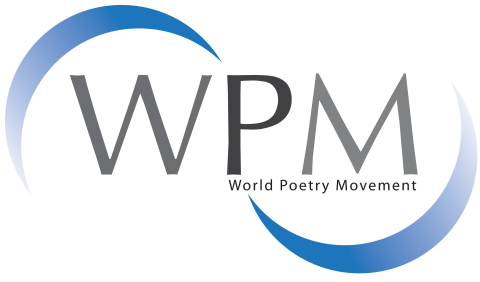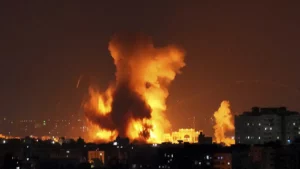By Flaminia Cruciani
A few years ago I founded a cultural movement called Poetry and Discovery, together with Tomaso Kemeny, Angelo Tonelli and other poets. In this movement I tried to express what poetry means to me. Let’s start from the name of the movement.
As Derrida says: “When a name comes it immediately says more than the name, announces the irruption of the other of the name, generates meaning, disseminates meaning; there is an impossibility to work in the name, there is a secret in the name that remains inviolable even when it is believed to have revealed it, which concerns a form of unability “. However, I will try to reveal it. Giving the name is an important thing, because as the Romans said, nomen omen, the name is an omen, in which the word gives its word and keeps the promise it contains. We start from Discovery, which is a word that we liked right away because it opens up a vast semantic field, which contains in itself the idea of discovery, but also of moving, of dynamism, of invention, of detection, of reconnaissance and of finding true. And the discovery involves a search and then a desire, a get to work, implicit in the circumstance of discovery. Among other things, it is a word that matters to me because it is used in archeology with the meaning of the real discovery, that is, of bringing to light something that was buried in the earth. The dynamic director that it contains represents the spirit of this traveling movement, therefore, and goes to the discovery of symbolic places, but not only as we will see. This dynamism is also resumed visually by the logo, which is a comet, which refers to the horizon of the project and this discovery; a cosmic horizon therefore, in a vertical direction from the stars to the earth, traced through poetry.
The star contains in its etymology the desire, from sidera, in the etymology the desire is that condition “in which the stars are absent”.
“The work of the poet is shaking the sky
waiting for some fragment to fall “.
The poets have a deep desire of the stars, therefore cosmic, as witnesses of a contemporary condition not starred. Let us not forget that this century has announced itself as a century of devastation. If we notice, in the opening of the century, the century is announced with events that then characterize its development, between 1909 and 1911 cubism and futurism are born that will be prophetic of what the century will develop: the machines the technological progress and also the reflection on the category of time that has involved the whole of the twentieth century. The new millennium was announced in 2001 with the fall of the twin towers as a century of devastation and destruction and this devastation continues and is staged before our eyes daily, we are bombarded with media images, which are mediated and re-mediated, and that they anesthetize us in terror.
And we come to the word Poetry, if we borrow a phrase from Eliot on the occupation of the saint, he says that “the occupation of the saint is to grasp the point of intersection of the temporal with time”. I think this phrase can also describe the occupation of the poet. If we look at the mystical etymology in the ancient world, “μυστικόσ”, “relative to the mysteries”, der. of μύστησ «initiated into the mysteries» derives from an interesting verb that derives from the verbu muéo, “beginning of the mysteries”, which is a verbal formation that comes from “myo” whose meaning is close my eyes. Initiation into ancient mysteries was a feast of entry into darkness. The mysteries are the depiction of a journey, closing the eyes the initiate opens to an elsewhere, Pindaro says in some ways: “what awaits the initiate is a vision”. Initiation to the mysteries, to the sacred, implies a vision and even poetry implies a vision. Even the poet is someone who sees what, others have under their eyes, but do not see or can not describe; in a certain sense he catches the invisible, he has an open look on an elsewhere. For the poet the invisible becomes visible, as for the mystic. The synthesis of art in this logic would become close my eyes to see. The poets, therefore, like the mystics are witnesses of the invisible, and this vision is also prophecy and divination. Marinetti on the subject of prophecy in art said: “art is inseparable from life for us: it becomes art-action and as such is only capable of prophetic and divining force”. Now, the invisible upsets the common sense because it is not measurable, reality is characterized by its measurable being; as Bergson says “we prefer the particles to the myths, the measurable, because the human intellect is at ease among inanimate objects, especially among the solids, where our action finds its fulcrum.”
Then, returning to poetry, the poet catches the point of intersection of the temporal with time the ultimate tension of poetry is the eternal, poetry is the link with the sacred. All this to say that I believe in the thaumaturgical value of poetry, and in the shamanic power of the poetic word, which becomes an instrument of inner transformation. Poetry creates moments of immanence of the sacred through, it is an actualization of the sacred, of a desacralized world, in a mythical now. As in the poetic actions of the Poetry and Discovery movement. Poetic actions that aim to bring poetry everywhere, in places where poetry is not there. In the stations, in the hospitals, in the squares, in front of the government headquarters in Italy, or under the statue of Giordano Bruno. Or in front of the “Milan BORSA”. Poetic actions of active spiritual resistance, in which poetry becomes a witness and weapon of social, political and cultural events, a weapon of protest for the affirmation of human civil rights. As in the action: “Poetic Affairs” in front of the “Milan BORSA”, where fifty poets have read poems of protest against the god of money and the logic of profit that manages everything.
The bag is a symbolic space so characteristic, as a symbol of the financial market and the economic system, it was conquered for two hours by poets who, with the beauty of the poetic word and its energy, subverted the semantic order of that space bringing poetry as a gift. We could say “enchanting” that space and time! There is a reversal of the coordinates that only poetry can accomplish, with its magical and transformative energy. In this action the idea of gift was celebrated, freed from the economic-commercial logic, which instead becomes a possibility of the impossible. At a time when man is alienated from himself and from others, with time marked by technology, the gift is instead imagined as a form of avant-garde sharing, of our ability to give ourselves and our time. And we think this is a revolution of thought. That only poetry can accomplish, as a word of revelation.
You could ask me; but where does the transformative energy of poetry come from? My idea is that it comes from this relationship that poetry entertains with the invisible that also involves the nature of the relationship that poetry has with time. Because, while time transforms man making him undergo the metamorphosis we know, as Horace says “the years dissolve and flee away to betrayal and piety will not be able to delay wrinkles and old age that looms and indomitable death”, poetry it is able to transform time, to suspend it in moments in which it plunders eternity and unties shoes to reality.
As the poet Cvetaeva says in the book “Il poeta e il tempo”, “time always runs, runs only because it runs, runs to run but does not run anywhere”; Here it is as if poetry could lead it, direct it to hit the target of eternity. When the poem arrives a short circuit takes place in which time is absent. The poem then is able to stop time in another sense: it is able to pass on the affections and keep the memory, then to oppose its destructive force. As Horace once again tells us: “I have completed a monumental work which is more enduring than bronze and higher than the royal mass of the pyramids, which will not destroy the rain that corrodes, nor the impetuous kite or the infinite series of the years and the flight of the centuries. I will not completely die and most of me will avoid death: I will continue to grow fresh in the praise of posterity “.
So it is this double relationship with time and the sacred that makes poetry the instrument of awareness and transformation, able to deviate from the vertical fall in the system in which we are enrolled, transported by the mass and the horizon of events, to change trajectory in one of our clinics. And this deviation, this clinamen, which we want to inspire, is visually represented by the comet of the oblique logo.
In conclusion, I think that the contemporary crisis that man experiences can be summed up in one sentence:
man today is an orphan of his myth of his archè, of his origin, therefore, the myth that founded it, because it was founded in him.
It is a geometric problem, the man has moved away from his acorn, from his daimon, from its mythical core, distracted by objects and identified with them. This acorn, as Hillman calls it, is not implanted in us, as an external object, but we are implanted in the myth of which the acorn is only our small, immense portion, whose nature is archaic; and the archaic, as Agamben says, “always has a secret appointment with the contemporary”.
Poetry can bring to light this mythical land promised by life,
buried inside the man by the banal incidence of the real,
in an archaeological excavation in the sedimentations of his soul.
Poetry is the powerful tool of discovery.
I’m finishing up writing a book about my archaeological memories :“Lezioni di immortalità”. It’s my poetic vision of my archeological work. It is a book that will be published next September by Mondadori.
Because poetry is everywhere, but the poet has the vision to extract it, as Plato says in the Ion, the poet has arrived the prophet or the sibyl.
I conclude with a my aphorism:
To ask what poetry is is to ask whether the penelope cloth was spun on the front or back.




